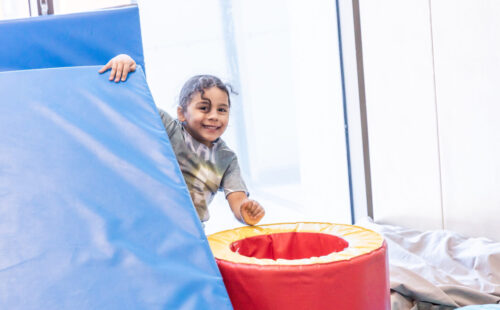What is Ramadan, and what impact can it have on clients and families?
Fasting
Ramadan is one of the five pillars of Islam and a month of fasting for those who are Muslim and practice the Islamic religion. It is considered a holy month, during which Muslim people focus on prayer and being closer to Allah or God. The Islamic religion requires fasting, meaning no one can have food or water from sunrise to sunset for 29 to 30 days. Ramadan begins with the first sighting of the crescent moon. It is important to note that not all Muslims are required to fast if they have medical conditions or are pregnant. Iftar is the breaking of the fast at sunset, and the typical food families eat during Iftar are sambosa, malawah, bur, and a special sauce. Dates and coffee are usually the first things people eat. Several families choose to gather during Iftar, especially in Muslim countries, as Ramadan focuses on a sense of community and bringing families together.
Praying
More prayer happens during Ramadan because the focus in the 29 or 30 days is to increase one’s spirituality and become closer to Allah or God. Typically, people pray five times per day, but during Ramadan, additional prayers (between six and 11) occur after 9:00 p.m. During this time, people often read or listen to the Qur’an, as well. There are certain days that are considered particularly important, as they are days for acceptance prayers. The reason behind the specific dates is difficult to translate into English but known to all Muslims. It is on these dates that it is possible to increase one’s connection to Allah or God. Typically, men pray in the mosques, whereas women usually pray in the home. Children are encouraged to pray and are typically encouraged to fast when they go through puberty. This is dependent on the family.
Community
As previously mentioned, Ramadan is also a time for community. Muslim people will give back to their community members and help those who need it most by offering food or money. Often people who live in the U.S. are more likely to send additional money “back home” to family members. It is part of our culture (Somali) to offer help to our family; it is not a choice. We are helping people survive “back home.”
Ramadan in the West
During Ramadan, it is important to take into consideration that staff, clients, and families will likely have less energy. Typically, families will have more limited communication, and their attendance in programming may decrease. It is also important to note that when living in Muslim countries, life adjusts to Ramadan. For example, schools start late and only run for three to four hours per day, while workdays are only about four hours long. When living in a Western country, life remains the same, so it can feel as if there is more pressure to continue being productive in school or work while also fasting and praying late into the night. Ramadan families will also be preparing for Eid towards the end of Ramadan, which includes cleaning, buying new household items and clothes, and preparing food to gather to celebrate. Understanding of this by others can be helpful during this time.
Carrying on Traditions
Muslim families will be observing Ramadan and celebrating Eid; however, there are differences within each family, as all families have different traditions like any holiday celebration. Culture impacts how a person observes Ramadan and celebrates Eid. For example, some families choose to be with their immediate family; some families celebrate with extended family members; some travel to spend time with family or call family members who live in different countries. One main connection, regardless of who is involved in the Eid celebration, is food. There are several dishes prepared and hours spent making food from scratch. In our culture, we will make large amounts of dishes to give to neighbors, as well. Overall, it is important for Muslim families to carry on Islamic traditions to their children, especially when living in Western countries, where there is a fear of losing one’s culture and religious beliefs.
Anab Kayad has worked as a paraprofessional, mental health practitioner, and family support coordinator in our East-African responsive Autism Day Treatment program at St. David’s Center for five years. She has a strong commitment to and passion for serving the East-African population. Anab is fluent in Somali, Arabic, and English.
Huda Ali is currently a Mental Health Practitioner in our East-African responsive Autism Day treatment program. Huda has been working at St. David’s for about 4 years working with young children and their families. She speaks Somali, Arabic and English.
Megan Weber has been a licensed marriage and family therapist for 12 years and works with both children and families. At St. David’s Center, Megan has been a clinical supervisor in our Autism Day treatment program and Program Director of our East-African Responsive Autism Day Treatment program at our downtown Minneapolis location.
